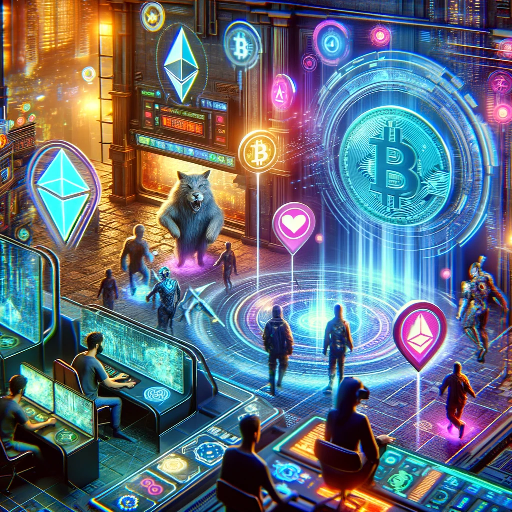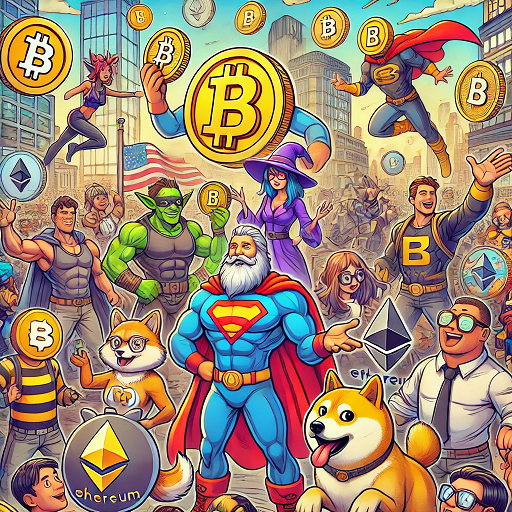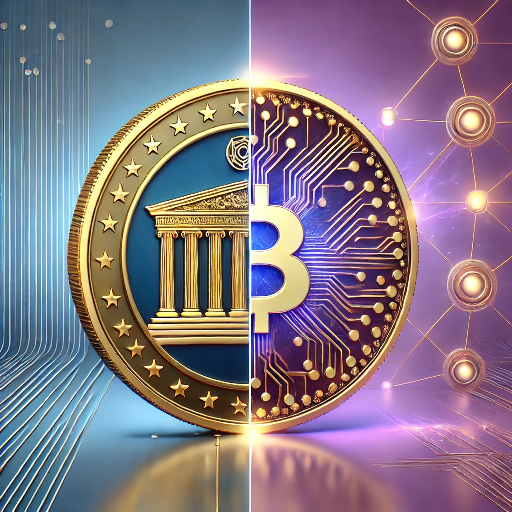In recent years, Gaming Guilds and Crypto Tokens have revolutionized the gaming industry, reshaping how players engage with virtual economies. The emergence of play-to-earn (P2E) models has allowed gamers to earn real-world value through in-game activities. This article delves into the rise of these communities, their significance, and what the future holds for blockchain gaming.
The Evolution of Gaming Guilds and Crypto Tokens
Gaming guilds have been a fundamental part of online multiplayer games for decades. These communities unite players who share common interests, offering mutual support and strategies for in-game success. With the advent of blockchain technology, these guilds have evolved into structured organizations that leverage cryptocurrency to enhance gaming experiences.
Crypto tokens, often integrated into blockchain-based games, serve as digital assets that players can earn, trade, or utilize within virtual ecosystems. Unlike traditional in-game currencies, these tokens hold real-world value, enabling players to monetize their gaming skills.
How Gaming Guilds and Crypto Tokens Work Together
The integration of crypto tokens within gaming guilds has led to the formation of decentralized autonomous organizations (DAOs). These DAOs allow members to collectively manage and distribute assets, fostering an environment where rewards are shared among participants.
Key Functions of Gaming Guilds:
- Investment in In-Game Assets – Guilds acquire valuable NFTs (non-fungible tokens) and distribute them among members.
- Scholarships and Revenue Sharing – Less experienced players (scholars) receive access to in-game assets in exchange for a percentage of their earnings.
- Community and Education – Guilds provide training, strategy development, and a support network for players.
The Role of Crypto Tokens:
- Facilitating Transactions – Tokens act as the primary medium for trade within gaming ecosystems.
- Reward Mechanisms – Players are incentivized through earnings tied to their in-game performance.
- Decentralized Governance – Token holders may participate in decision-making processes regarding game policies and guild activities.
The Growth of Play-to-Earn Communities
Play-to-earn gaming has gained significant traction, especially in developing countries where earning opportunities are limited. These communities provide an alternative income stream for many players, making gaming more than just a leisure activity.
Factors Driving the Growth:
- Economic Incentives – Players earn digital assets that can be exchanged for fiat currency.
- Blockchain Security – Transparency and security within gaming transactions build trust.
- Scalability of P2E Models – Games adopting these models attract vast user bases, increasing the value of their token economies.
Challenges Facing Gaming Guilds and Crypto Tokens
Despite their success, these ecosystems face several challenges:
- Regulatory Uncertainty – Many governments are still formulating policies around crypto gaming.
- Market Volatility – The fluctuating value of tokens can impact player earnings.
- Game Sustainability – Not all P2E games can maintain long-term engagement and profitability.
To overcome these hurdles, developers and guilds are focusing on creating sustainable economies, improving game mechanics, and collaborating with regulatory bodies to ensure compliance.
The Future of Gaming Guilds and Crypto Tokens
As blockchain technology advances, gaming guilds will continue evolving. The rise of metaverse gaming, interoperability between different gaming platforms, and AI-driven economies will further enhance the play-to-earn experience.
Gaming companies are investing heavily in Web3 technologies, integrating NFTs and decentralized finance (DeFi) into their ecosystems. This progress indicates that gaming guilds and crypto tokens are not a passing trend but a transformative movement within the industry.
Conclusion
The intersection of Gaming Guilds and Crypto Tokens has ushered in a new era of digital economies where players can truly own and monetize their virtual assets. While challenges remain, the potential of play-to-earn communities is vast, promising a future where gaming is not just entertainment but a legitimate economic opportunity.
As this space continues to grow, staying informed and engaged with the latest developments will be crucial for both players and investors. With the rapid evolution of blockchain technology, gaming guilds will play a pivotal role in shaping the decentralized future of interactive entertainment.


















